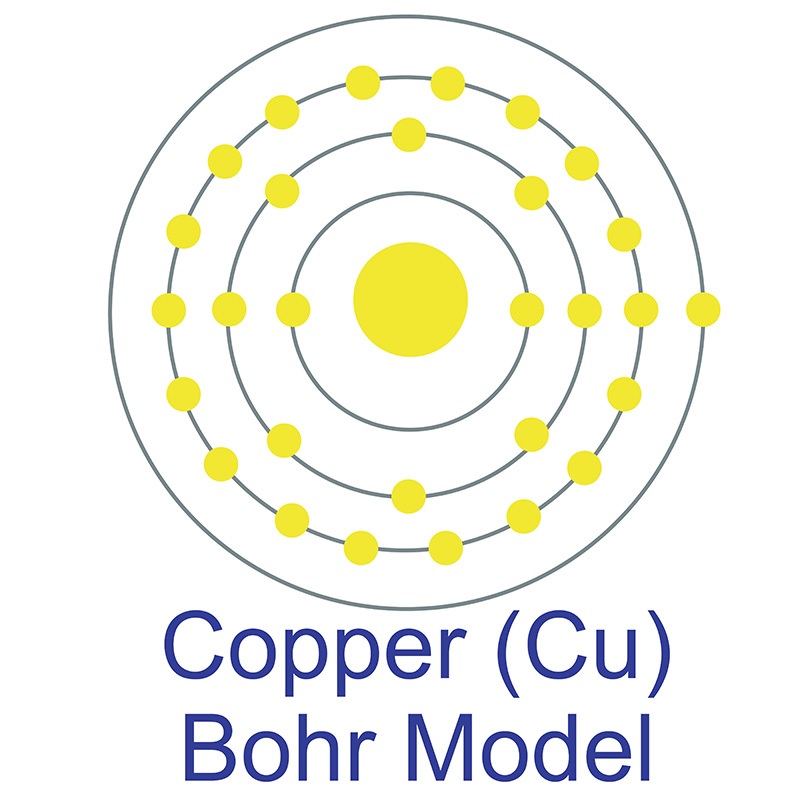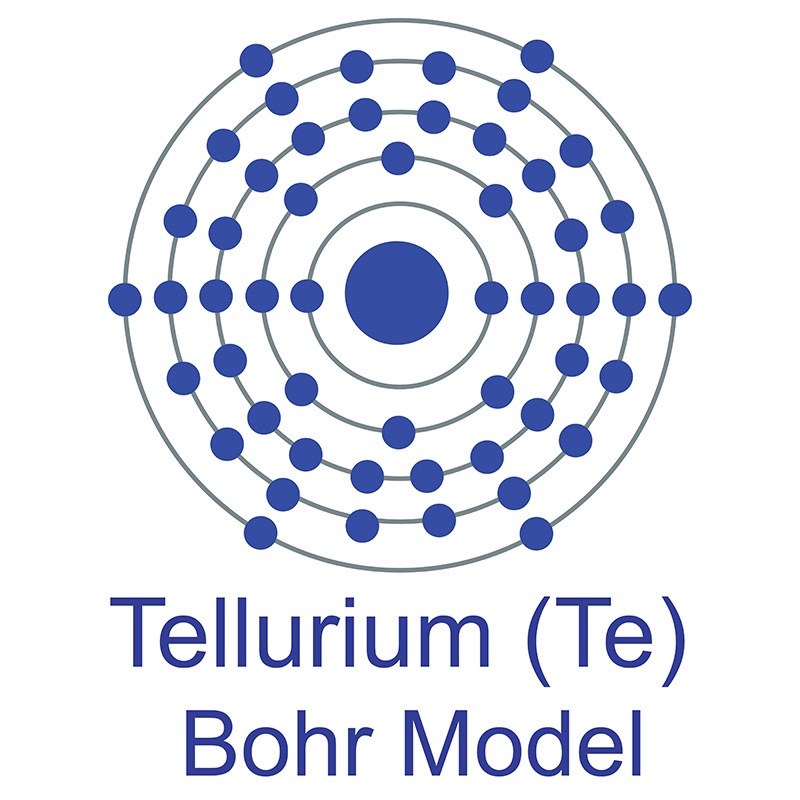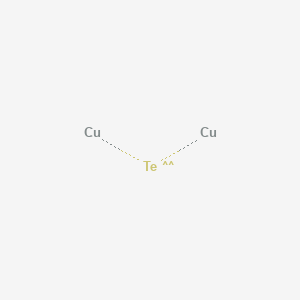SECTION 1. IDENTIFICATION
Product Name: Copper(I) Telluride Sputtering Target
Product Number: All applicable American Elements product codes, e.g. CU1-TE-02-ST
, CU1-TE-03-ST
, CU1-TE-04-ST
, CU1-TE-05-ST
CAS #: 12019-52-2
Relevant identified uses of the substance: Scientific research and development
Supplier details:
American Elements
10884 Weyburn Ave.
Los Angeles, CA 90024
Tel: +1 310-208-0551
Fax: +1 310-208-0351
Emergency telephone number:
Domestic, North America: +1 800-424-9300
International: +1 703-527-3887
SECTION 2. HAZARDS IDENTIFICATION
Classification
Classification under 2012 OSHA Hazard Communication Standard (29 CFR 1910.1200)
Label Elements
None required
Hazards not otherwise classified (HNOC)
None identified
SECTION 3. COMPOSITION/INFORMATION ON INGREDIENTS
Component:
Copper(I) Telluride (Cu2Te)
CAS-No:
12019-52-2
Weight:
< 100%
SECTION 4. FIRST AID MEASURES
Eye Contact:
Rinse immediately with plenty of water, also under the eyelids, for at least 15 minutes. Get medical attention.
Skin Contact:
Wash off immediately with plenty of water for at least 15 minutes. Get medical attention immediately if symptoms occur.
Inhalation:
Move to fresh air. Get medical attention immediately if symptoms occur.
Ingestion:
Clean mouth with water and drink afterwards plenty of water. Get medical attention if symptoms occur.
Most important symptoms and effects:
None reasonably foreseeable.
Notes to Physician:
Treat symptomatically
SECTION 5. FIREFIGHTING MEASURES
Suitable Extinguishing Media: Not combustible.
Unsuitable Extinguishing Media: No information available
Flash Point: No information available
Method: No information available
Autoignition Temperature: No information available
Explosion Limits
Upper: No data available
Lower: No data available
Sensitivity to Mechanical Impact: No information available
Sensitivity to Static Discharge: No information available
Specific Hazards Arising from the Chemical:
Keep product and empty container away from heat and sources of ignition.
Hazardous Combustion Products:
Tellurium oxide Copper oxides
Protective Equipment and Precautions for Firefighters:
As in any fire, wear self-contained breathing apparatus pressure-demand, MSHA/NIOSH (approved or equivalent) and full protective gear.
NFPA
Health: 2
Flammability: 0
Instability: 0
Physical hazards: -
SECTION 6. ACCIDENTAL RELEASE MEASURES
Personal Precautions:
Ensure adequate ventilation. Use personal protective equipment. Avoid dust formation.
Environmental Precautions:
Should not be released into the environment. See Section 12 for additional ecological information. Do not allow material to contaminate ground water system. Do not flush into surface water or sanitary sewer system.
Methods for Containment and Clean Up:
Sweep up or vacuum up spillage and collect in suitable container for disposal. Avoid dust formation.
SECTION 7. HANDLING AND STORAGE
Handling:
Wear personal protective equipment. Ensure adequate ventilation. Avoid contact with skin, eyes and clothing. Avoid ingestion and inhalation. Avoid dust formation.
Storage:
Keep containers tightly closed in a dry, cool and well-ventilated place.
SECTION 8. EXPOSURE CONTROLS/PERSONAL PROTECTION
Exposure Guidelines
Component:
Copper(I) Telluride (Cu2Te)
ACGIH TLV:
TWA: 1 mg/m3
TWA: 0.1 mg/m3
OSHA PEL:
(Vacated) TWA: 0.1 mg/m3
NIOSH IDLH:
IDLH: 100 mg/m3
IDLH: 25 mg/m3
TWA: 1 mg/m3
TWA: 0.1 mg/m3
Mexico OEL (TWA):
TWA: 0.1 mg/m3
Engineering Measures:
None under normal use conditions.
Personal Protective Equipment
Eye/face Protection:
Wear appropriate protective eyeglasses or chemical safety goggles as described by OSHA's eye and face protection regulations in 29 CFR 1910.133 or European Standard EN166.
Skin and body protection:
Wear appropriate protective gloves and clothing to prevent skin exposure.
Respiratory Protection:
No protective equipment is needed under normal use conditions.
Hygiene Measures:
Handle in accordance with good industrial hygiene and safety practice.
SECTION 9. PHYSICAL AND CHEMICAL PROPERTIES
Physical State: Solid
Appearance: No information available
Odor: Odorless
Odor Threshold: No information available
pH: No information available
Melting Point/Range: No data available
Boiling Point/Range: No information available
Flash Point: No information available
Evaporation Rate: Not applicable
Flammability (solid,gas): No information available
Flammability or explosive limits
Upper: No data available
Lower: No data available
Vapor Pressure: No information available
Vapor Density: Not applicable
Specific Gravity: 7.27 g/cm3
Solubility: No information available
Partition coefficient; n-octanol/water: No data available
Autoignition Temperature: No information available
Decomposition Temperature: No information available
Viscosity: Not applicable
Molecular Formula: Cu2Te
Molecular Weight: 254.68
SECTION 10. STABILITY AND REACTIVITY
Reactive Hazard:
None known, based on information available
Stability:
Stable under normal conditions.
Conditions to Avoid:
Incompatible products.
Incompatible Materials:
Strong oxidizing agents
Hazardous Decomposition Products:
Tellurium oxide, Copper oxides
Hazardous Polymerization:
Hazardous polymerization does not occur.
Hazardous Reactions:
None under normal processing.
SECTION 11. TOXICOLOGICAL INFORMATION
Acute Toxicity
Product Information:
Component Information:
Toxicologically Synergistic Products: No information available
Delayed and immediate effects as well as chronic effects from short and long-term exposure
Irritation: No information available
Sensitization: No information available
Carcinogenicity
Component: Copper(I) Telluride
CAS-No: 12019-52-2
IARC: Not listed
NTP: Not listed
ACGIH: Not listed
OSHA: Not listed
Mexico: Not listed
Mutagenic Effects: No information available
Reproductive Effects: No information available.
Developmental Effects: No information available.
Teratogenicity: No information available.
STOT - single exposure: None known
STOT - repeated exposure: None known
Aspiration hazard: No information available
Symptoms / effects,both acute and delayed: No information available
Endocrine Disruptor Information: No information available
Other Adverse Effects: The toxicological properties have not been fully investigated.
SECTION 12. ECOLOGICAL INFORMATION
Ecotoxicity
May cause long-term adverse effects in the environment. Do not allow material to contaminate ground water system.
Persistence and Degradability: Insoluble in water may persist
Bioaccumulation/ Accumulation: No information available.
Mobility: Is not likely mobile in the environment due its low water solubility
SECTION 13. DISPOSAL CONSIDERATIONS
Waste Disposal Methods:
Chemical waste generators must determine whether a discarded chemical is classified as a hazardous waste. Chemical waste generators must also consult local, regional, and national hazardous waste regulations to ensure complete and accurate classification.
SECTION 14. TRANSPORT INFORMATION
DOT:
Not regulated
TDG:
Not regulated
IATA:
Not regulated
IMDG/IMO:
Not regulated
SECTION 15. REGULATORY INFORMATION
Component
TSCA: X
DSL: -
NDSL: X
EINECS: 234-646-1
ELINCS: -
NLP:
PICCS: -
ENCS: -
AICS: -
IECS: -
KECL: X
U.S. Federal Regulations
TSCA 12(b):
Not applicable
SARA 313
Component: Copper(I) Telluride
CAS-No: 12019-52-2
Weight:
< 100%
SARA 313 - Threshold Values:
1.0%
CWA (Clean Water Act):
Component: Copper(I) Telluride
CWA - Hazardous Substances: -
CWA - Reportable Quantities: -
CWA - Toxic Pollutants: X
CWA - Priority Pollutants: -
Clean Air Act: Not applicable
OSHA: Not applicable
CERCLA: Not applicable
California Proposition 65: This product does not contain any Proposition 65 chemicals
U.S. State Right-to-Know Regulations
Component: Copper(I) Telluride
Massachusetts: -
New Jersey: X
Pennsylvania: X
Illinois: -
Rhode Island: X
U.S. Department of Transportation
Reportable Quantity (RQ): N
DOT Marine Pollutant: N
DOT Severe Marine Pollutant: N
U.S. Department of Homeland Security:
This product does not contain any DHS chemicals.
Mexico - Grade:
No information available
SECTION 16. OTHER INFORMATION
Safety Data Sheet according to Regulation (EC) No. 1907/2006 (REACH). The above information is believed to be correct but does not purport to be all inclusive and shall be used only as a guide. The information in this document is based on the present state of our knowledge and is applicable to the product with regard to appropriate safety precautions. It does not represent any guarantee of the properties of the product. American Elements shall not be held liable for any damage resulting from handling or from contact with the above product. See reverse side of invoice or packing slip for additional terms and conditions of sale. COPYRIGHT 1997-2022 AMERICAN ELEMENTS. LICENSED GRANTED TO MAKE UNLIMITED PAPER COPIES FOR INTERNAL USE ONLY.
 Copper (atomic symbol: Cu, atomic number: 29) is a Block D, Group 11, Period 4 element with an atomic weight of 63.546. The number of electrons in each of copper's shells is 2, 8, 18, 1 and its electron configuration is [Ar]3d10 4s1. The copper atom has a radius of 128 pm and a Van der Waals radius of 186 pm. Copper was first discovered by Early Man prior to 9000 BC. In its elemental form, copper has a reddish-orange metallic and lustrous appearance. Of all pure metals, only silver
Copper (atomic symbol: Cu, atomic number: 29) is a Block D, Group 11, Period 4 element with an atomic weight of 63.546. The number of electrons in each of copper's shells is 2, 8, 18, 1 and its electron configuration is [Ar]3d10 4s1. The copper atom has a radius of 128 pm and a Van der Waals radius of 186 pm. Copper was first discovered by Early Man prior to 9000 BC. In its elemental form, copper has a reddish-orange metallic and lustrous appearance. Of all pure metals, only silver  has a higher electrical conductivity. The origin of the word copper comes from the Latin word 'cuprium' which translates as "metal of Cyprus," as the Mediterranean island of Cyprus was known as an ancient source of mined copper..
has a higher electrical conductivity. The origin of the word copper comes from the Latin word 'cuprium' which translates as "metal of Cyprus," as the Mediterranean island of Cyprus was known as an ancient source of mined copper..
 The number of electrons in each of tellurium's shells is 2, 8, 18, 18, 6 and its electron configuration is [Kr] 4d10 5s2 5p4. Tellurium was discovered by Franz Muller von Reichenstein in 1782 and first isolated by Martin Heinrich Klaproth in 1798. In its elemental form, tellurium has a silvery lustrous gray appearance. The tellurium atom has a radius of 140 pm and a Van der Waals radius of 206 pm.
The number of electrons in each of tellurium's shells is 2, 8, 18, 18, 6 and its electron configuration is [Kr] 4d10 5s2 5p4. Tellurium was discovered by Franz Muller von Reichenstein in 1782 and first isolated by Martin Heinrich Klaproth in 1798. In its elemental form, tellurium has a silvery lustrous gray appearance. The tellurium atom has a radius of 140 pm and a Van der Waals radius of 206 pm.  Tellurium is most commonly sourced from the anode sludges produced as a byproduct of copper refining. The name Tellurium originates from the Greek word Tellus, meaning Earth.
Tellurium is most commonly sourced from the anode sludges produced as a byproduct of copper refining. The name Tellurium originates from the Greek word Tellus, meaning Earth.
